Programs
Tuesday, June 18, 2019
The Words We Use To Talk About Race
This event has already occurred. Enjoy event details below.
When: Tuesday, June 18, 2019, 7:00 p.m. to 9:00 p.m.
Where: Gibney: Agnes Varis Center for the Performing Arts, Studio U. 280 Broadway, New York, NY, 10007
Register for the Conversation: FREE. Registration is required.
Enjoy first part of the event video here and second part of the event video here
Accessibility: ![]()
 Gibney is an accessible venue. Wheelchair ramps and elevators are available via the 280 Broadway entrance. Please note that this is a shared entrance with the New York City Department of Buildings. To access the elevator, attendees may be
Gibney is an accessible venue. Wheelchair ramps and elevators are available via the 280 Broadway entrance. Please note that this is a shared entrance with the New York City Department of Buildings. To access the elevator, attendees may be
asked to provide a valid photo ID and go through building security, including a
metal detector. All restrooms are gender inclusive and wheelchair accessible. Studios and rooms are lit by fluorescent lights. ASL Interpretation will be provided at this event. We will not be able to provide child care or health care for this event. If you require reasonable accommodation, please contact Christopher Núñez at least two weeks prior to the event via email at cnunez@dance.nyc or call 212-966-4452 (voice only).
About: Join Independent Consultant and Producer Baraka Sele and Dance/NYC’s Executive Director Alejandra Duque Cifuentes for an armchair conversation on the words we use to talk about race and ethnicity. In recent years, arts and cultural organizations have been galvanized under increasing pressure to be diverse, equitable, and inclusive. As a result, artistic and nonprofit communities have devised public statements and programming to articulate their commitments to different racial and ethnic groups and intended impacts. These actions, while necessary components of equity work, have surfaced the complexities and deficiencies of current race-related language. The terminology often fails to recognize and create space for communities, while also inadequately articulating the fullness of an individual’s experience. This conversation aims to examine the history, nuance, and impact of the words we use to talk about race in arts and culture, and present considerations for how we can move forward.
This session is inspired by Dance/NYC Junior Committee’s 2019 Symposium Session, The Words We Use To Talk About Race, and recent blog "Middle Eastern" ≠ "Arab" - Why That Matters (and more) and Baraka Sele’s A Black Paper: Revolution / Resilience / Race.
It will use the following articles and reflections as base content. Attendees are encouraged to review materials in advance.
- The Term ‘People of Color’ Erases Black People. Let’s Retire It.
- We Should Stop Saying “People of Color” When We Mean “Black People”
- The origin of the phrase “Women of Color”
- Latinx ≠ People of Color
- Can Latinos Benefit From White Privilege
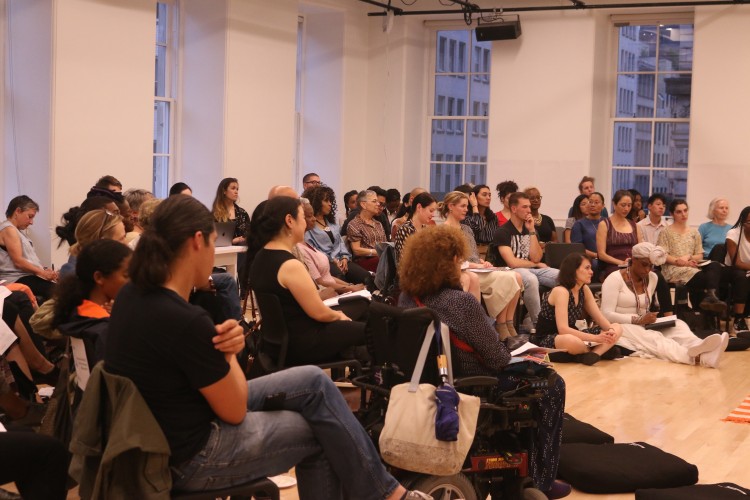
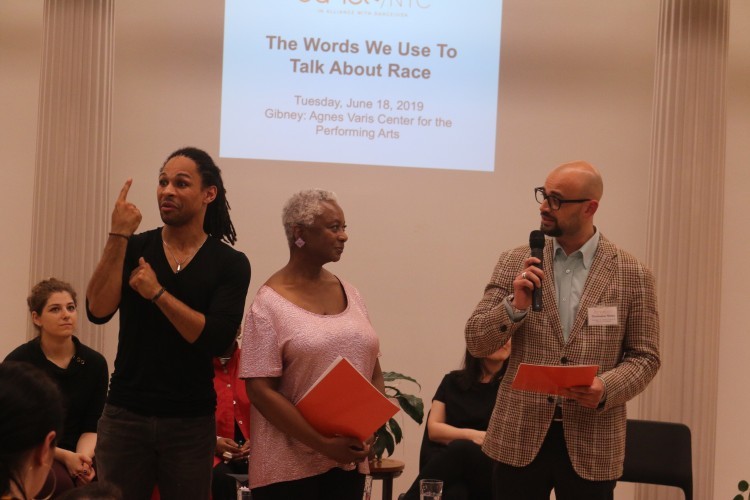
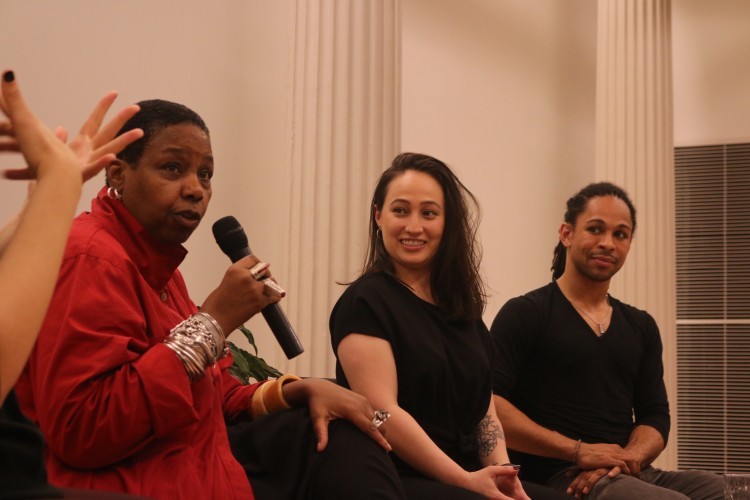
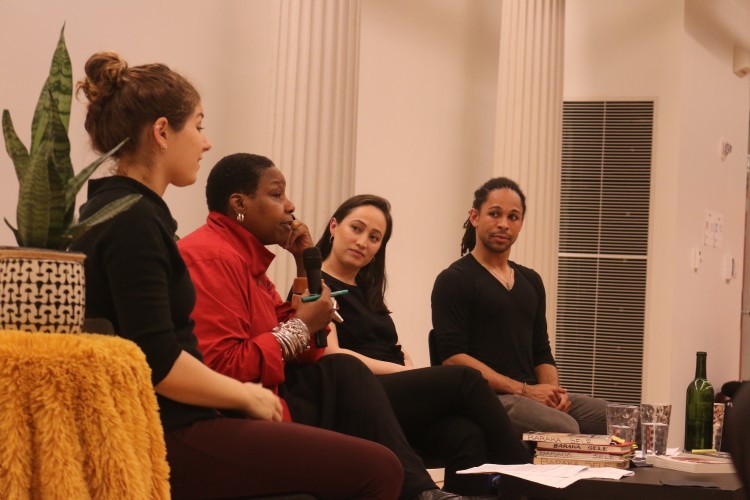
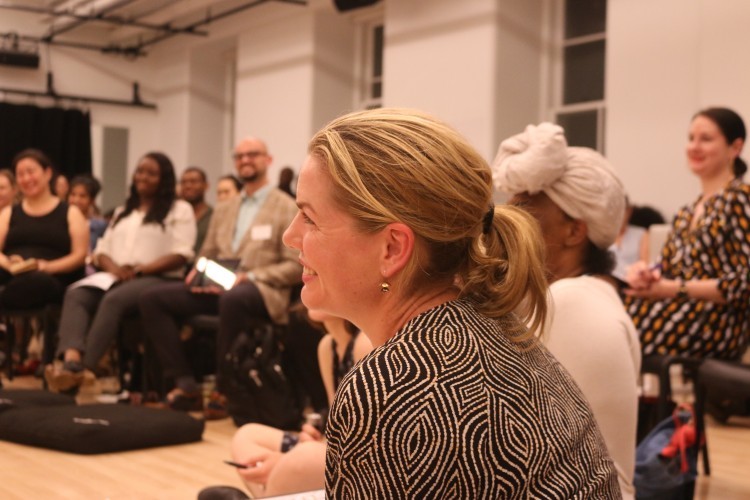
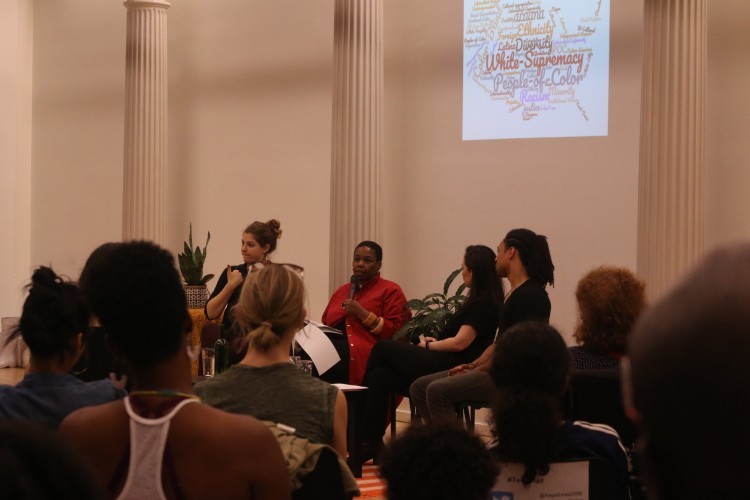
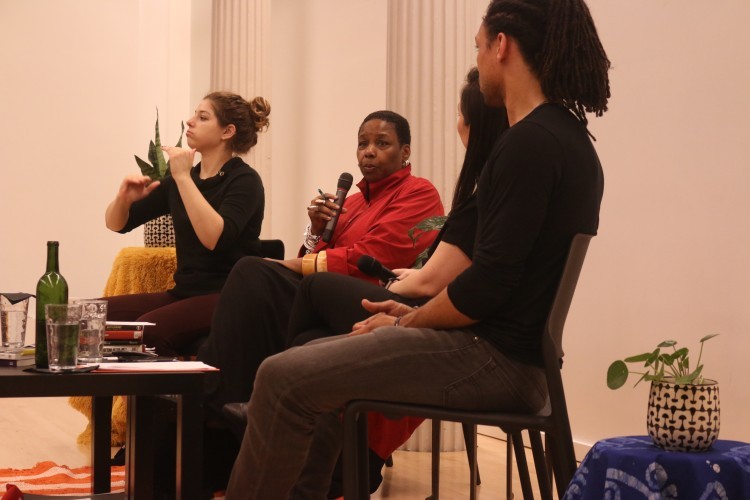
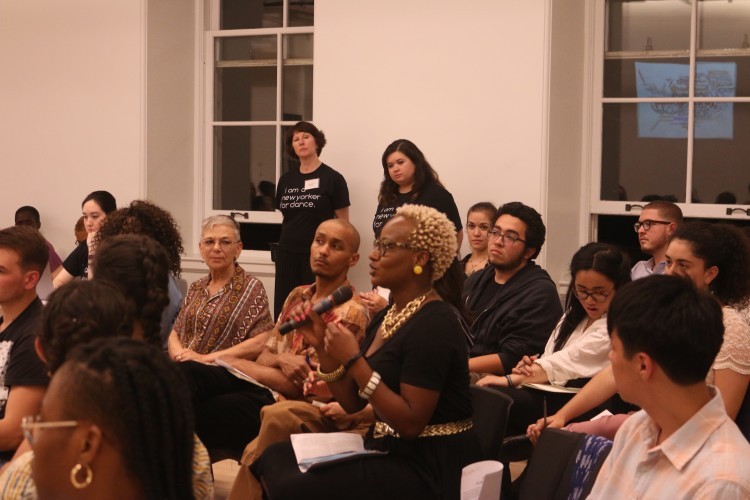
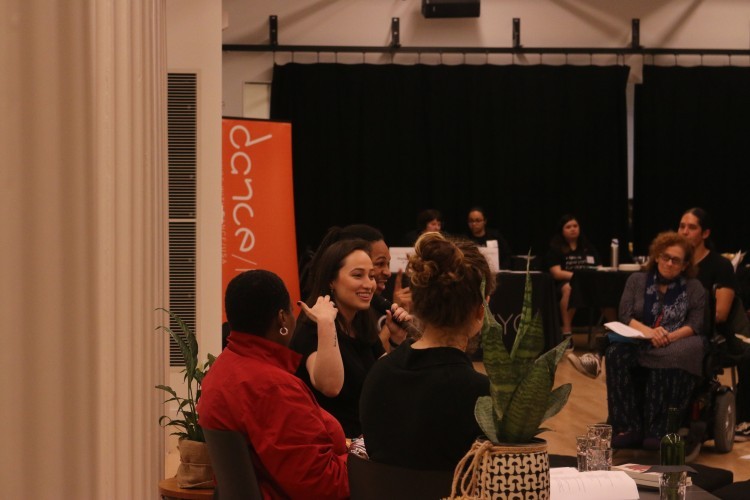
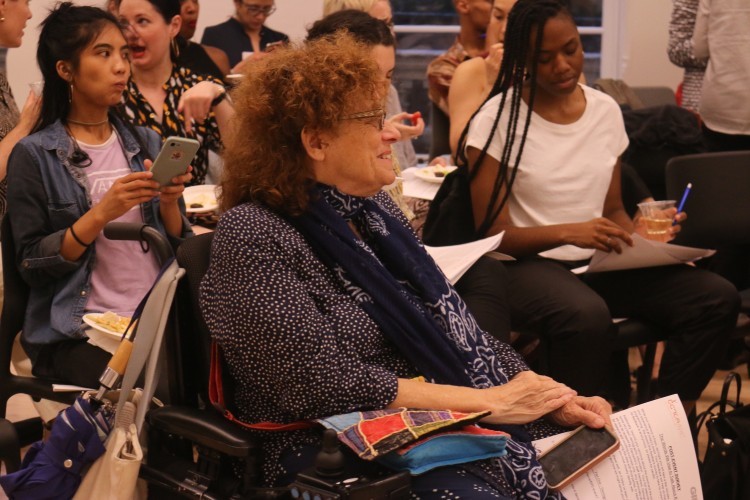
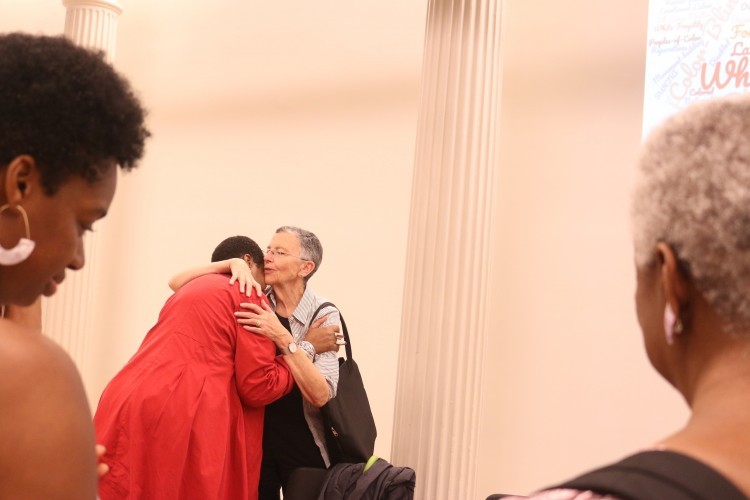
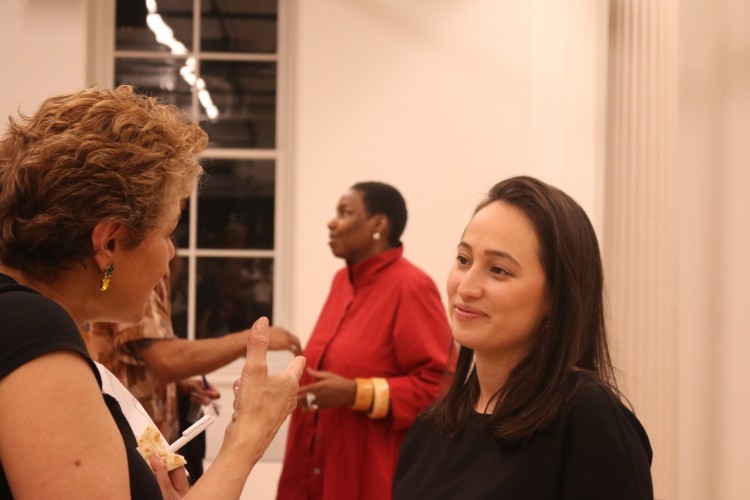
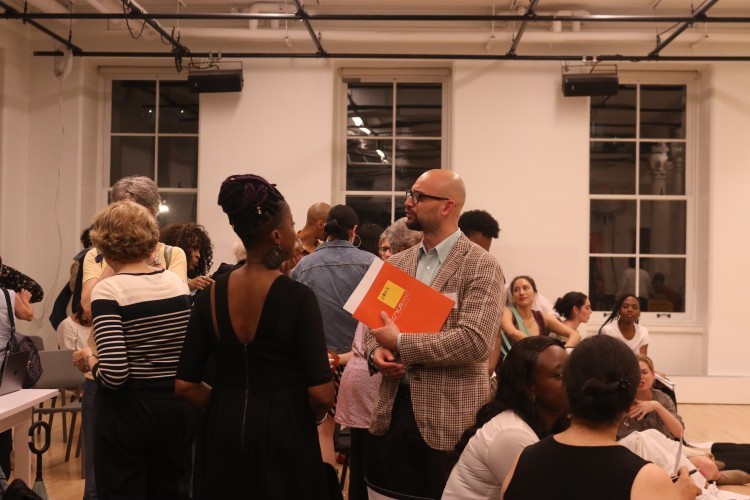

Book recommendations by panelists:
 Voices from the Battlefront: Achieving cultural equity.
Voices from the Battlefront: Achieving cultural equity.
By Marta Moreno Vega & Cheryll Y. Greene
 Faces at the bottom of the well: The permanence of Racism.
Faces at the bottom of the well: The permanence of Racism.
By Derrick Bell
By Haig A. Bosmajian
 Claiming disability: Knowledge and Identity
Claiming disability: Knowledge and Identity
By Simi Linton
 White Fragility: Why is it so hard for white people to talk about racism
White Fragility: Why is it so hard for white people to talk about racism
By Robin Diangelo
 How we fight white supremacy: A field guide to black resistance
How we fight white supremacy: A field guide to black resistance
By Akiba Solomon
By Cornel West
By Ibram X. Kendi
Special recommendation by Eva Yaa Asantewaa, Senior Curatorial Director at Gibney
NYT Article recommendations by Baraka Sele:
How These Black Playwrights Are Challenging American Theater By Michael Paulson and Nicole Herrington
Money, Ethics, Art: Can Museums Police Themselves? By Holland Cotter
Panelist Biographies:
08513de0beb3532e820bab391553c9843af4b26902d27f81604f1c.jpg) BARAKA SELE has over 30 years’ experience as a performing arts curator, consultant, and producer. She has held leadership positions as Assistant Vice President of Programming at New Jersey Performing Arts Center, as the first Artistic Director of Performing Arts at Yerba Buena Center for the Arts in San Francisco and Vice President of Performing Arts of The Houston International Festival. Throughout her career, she has also served on local, national and international advisory committees, boards and panels for numerous organizations. Sele has traveled throughout Africa, Asia, Europe and North and South America, focusing on collaborations and presentations with artists of diverse communities and cultures in order to facilitate intercultural exchange. Her work or presentations have been featured in many publications, including American Theater magazine, Dance magazine, Essence magazine, Inside Arts magazine, The New York Times, Washington Post. National and international awards and recognition include the Association of Performing Arts Professionals' William Dawson Award for Programmatic Excellence given to an individual or organization for "the quality, innovation, and vision of program design, audience building, and community involvement." At Rutgers University-Newark, Sele served as a Fellow for the Institute of Ethnicity, Culture and the Modern Experience and taught a graduate course in Leadership and Diversity. Photo Credit: Baraka Sele by Robin Carpenter.
BARAKA SELE has over 30 years’ experience as a performing arts curator, consultant, and producer. She has held leadership positions as Assistant Vice President of Programming at New Jersey Performing Arts Center, as the first Artistic Director of Performing Arts at Yerba Buena Center for the Arts in San Francisco and Vice President of Performing Arts of The Houston International Festival. Throughout her career, she has also served on local, national and international advisory committees, boards and panels for numerous organizations. Sele has traveled throughout Africa, Asia, Europe and North and South America, focusing on collaborations and presentations with artists of diverse communities and cultures in order to facilitate intercultural exchange. Her work or presentations have been featured in many publications, including American Theater magazine, Dance magazine, Essence magazine, Inside Arts magazine, The New York Times, Washington Post. National and international awards and recognition include the Association of Performing Arts Professionals' William Dawson Award for Programmatic Excellence given to an individual or organization for "the quality, innovation, and vision of program design, audience building, and community involvement." At Rutgers University-Newark, Sele served as a Fellow for the Institute of Ethnicity, Culture and the Modern Experience and taught a graduate course in Leadership and Diversity. Photo Credit: Baraka Sele by Robin Carpenter.
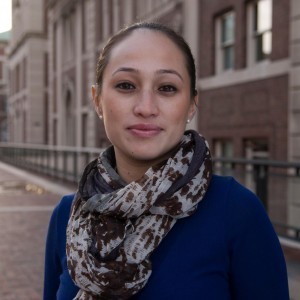 ALEJANDRA DUQUE CIFUENTES is an immigrant, activist, artist, producer, and educator. With more than 10 years of production and stage management experience in theatre and dance, she has toured nationally and internationally with Zaccho Dance Theatre, Bandaloop, Dancing in The Streets, The Foundry Theatre, and Columbia University School of the Arts, among others. As a teaching artist, Ms. Duque Cifuentes taught children and adults of all ages how to express themselves through theatre and movement practice in over 100 New York City public schools and through community theatre programs. In 2011 she founded Theatre That Transcends, which taught local, underserved communities how to express themselves and address community issues through the art of theatre. As an activist, she plays an integral part in advancing a more equitable arts and cultural ecology by working on measures to increase access, justice, equity, and inclusion within dance for disabled artists, immigrant artists, and artists of color in the five boroughs of New York City. Ms. Duque Cifuentes is a member of the National Association for Latino Arts and Culture, Women of Color in the Arts, the Children Museum of Manhattan’s Dance Portal Advisory Board, and Eva Yaa Asantewaa’s Curatorial Advisory Team at Gibney, and she is an advisor for the Latinx Artists Retreat, an annual convening for Latinx cultural producers across all artistic disciplines and fields. She was born in Medellín, Colombia and holds a Bachelor of Arts degree in Drama and Theatre Arts from Columbia University School of General Studies. Photo credit: Alejandra Duque Cifuentes by Alan S. Orling.
ALEJANDRA DUQUE CIFUENTES is an immigrant, activist, artist, producer, and educator. With more than 10 years of production and stage management experience in theatre and dance, she has toured nationally and internationally with Zaccho Dance Theatre, Bandaloop, Dancing in The Streets, The Foundry Theatre, and Columbia University School of the Arts, among others. As a teaching artist, Ms. Duque Cifuentes taught children and adults of all ages how to express themselves through theatre and movement practice in over 100 New York City public schools and through community theatre programs. In 2011 she founded Theatre That Transcends, which taught local, underserved communities how to express themselves and address community issues through the art of theatre. As an activist, she plays an integral part in advancing a more equitable arts and cultural ecology by working on measures to increase access, justice, equity, and inclusion within dance for disabled artists, immigrant artists, and artists of color in the five boroughs of New York City. Ms. Duque Cifuentes is a member of the National Association for Latino Arts and Culture, Women of Color in the Arts, the Children Museum of Manhattan’s Dance Portal Advisory Board, and Eva Yaa Asantewaa’s Curatorial Advisory Team at Gibney, and she is an advisor for the Latinx Artists Retreat, an annual convening for Latinx cultural producers across all artistic disciplines and fields. She was born in Medellín, Colombia and holds a Bachelor of Arts degree in Drama and Theatre Arts from Columbia University School of General Studies. Photo credit: Alejandra Duque Cifuentes by Alan S. Orling.
VALUES OF JUSTICE, EQUITY & INCLUSION
Dance/NYC believes the dance ecology must itself be just, equitable, and inclusive to meaningfully contribute to social progress and envisions a dance ecology wherein power, funding, opportunities, conduct, and impacts are fair for all artists, cultural workers, and audiences. It seeks to advance policies, investments, programs, mindsets, and actions that remove and prevent inequities that exist along the continuum of lives in dance, from the public school classroom to the stage.
Dance/NYC’s approach cuts across its public programs—advocacy and research; leadership training, networking and convening; technology and visibility; and regranting—and all aspects of its operations. Its approach is intersectional, building upon multiple issue areas that together create a more just, equitable, and inclusive dance ecology. Dance/NYC’s approach is also grounded in collaboration. It recognizes generations of people and organizations working to advance justice, equity, and inclusion in the arts and culture and strives to contribute to their efforts. It has established formal partnerships with colleague arts service organizations. Learn more about our partners on our website: Dance.NYC/equity/equityinclusionpartners.
RACIAL JUSTICE AGENDA
Dance/NYC seeks to dismantle white supremacy in dance and amplify the voices and autonomy of the African, Latina/o/x, Asian, Arab, and Native American (ALAANA) community. Please refer to Dance/NYC’s Racial Justice Agenda to learn more about our work.
Agenda: Dance.NYC/RacialJusticeAgenda
Dance/NYC’s use of terms builds on learning with Race Forward and established leaders and experts in justice, equity and inclusion. Dance/NYC recognizes that language is constantly in flux and that words might have different meanings depending on their context and use. Please refer to a full glossary and resource directory: Dance.NYC/JEIdirectory
@DanceNYC #townhall
Dance/NYC's diversity, equity, and inclusion initiatives are made possible with leadership support from The Andrew W. Mellon Foundation. Dance/NYC convening is also made possible, in part, by public funds from the New York City Department of Cultural Affairs, in partnership with the City Council, the New York State Council on the Arts and from the National Endowment for the Arts.
 |
 |
Dance/NYC seeks partners and speakers with a variety of viewpoints for its events with the goal of generating discussion. The inclusion of any partner or speaker does not constitute an endorsement by Dance/NYC of that partner's or speaker's views.

 The language of Oppression
The language of Oppression




